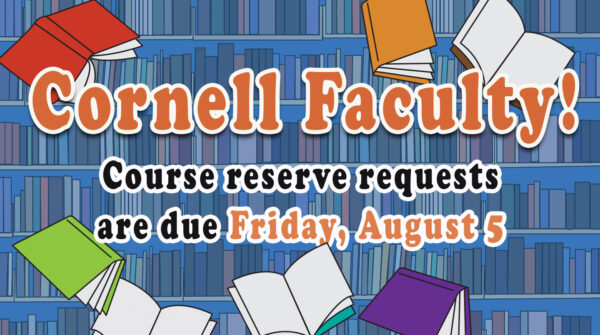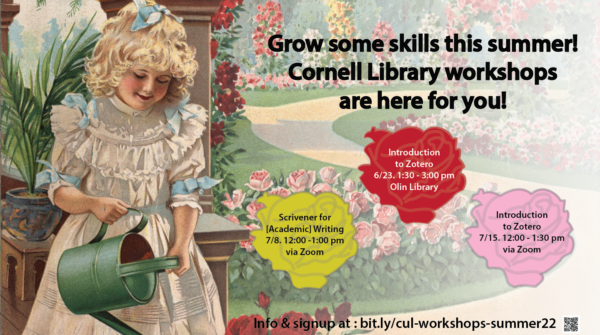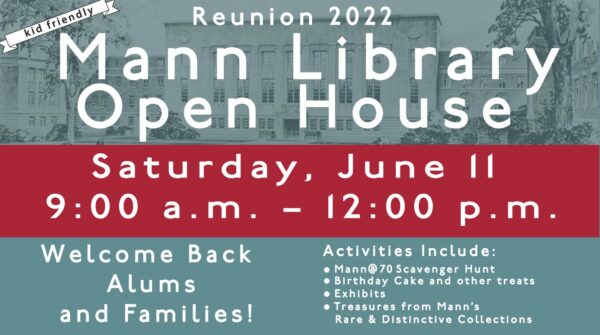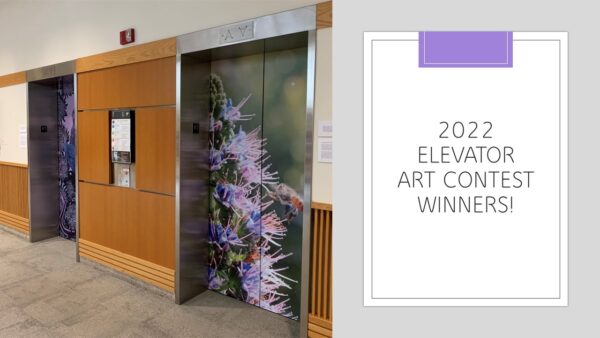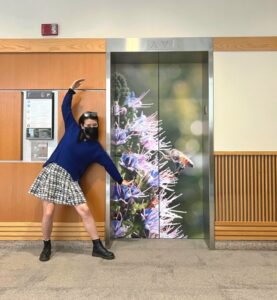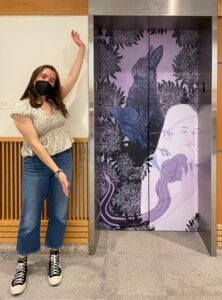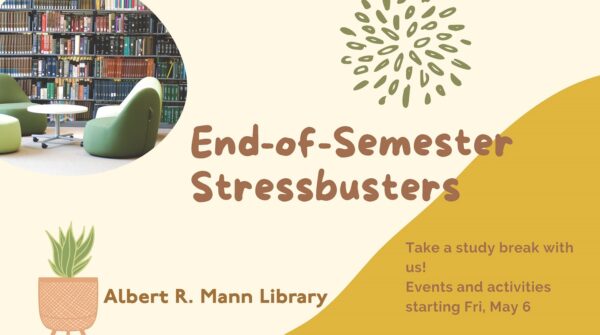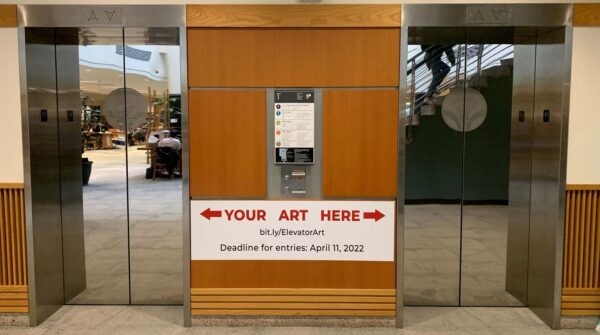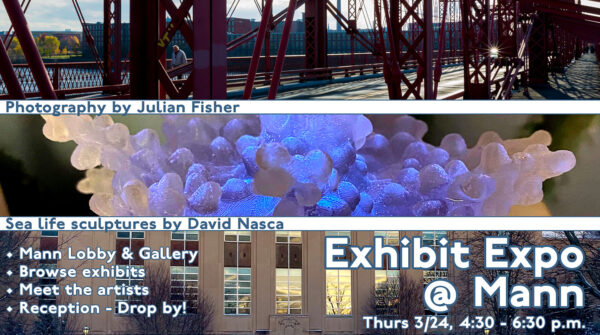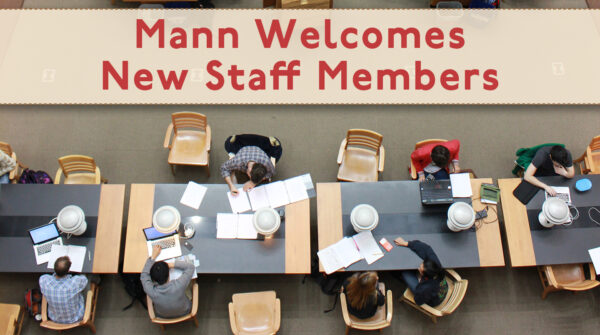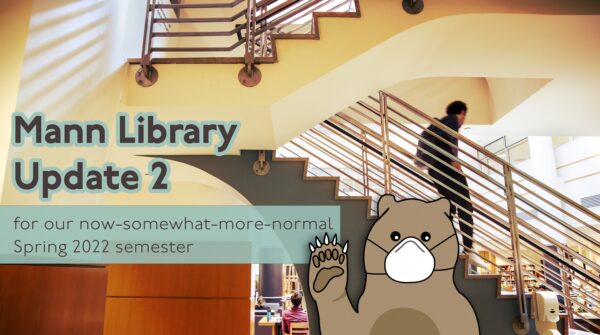Faculty and instructors, please submit your fall semester course reserves requests by Friday, August 5. Please see instructions for submitting requests: https://www.library.cornell.edu/services/reserves.
Mann’s physical course reserves will again be held in a self-service model. Students can use materials in the library without checking them out. If desired, they may check out materials overnight. Multi-function printers/scanners are available in the library for scanning chapters at no charge.
Note that per our Copyright Office, if you are using streaming media for your course (films, tv shows, or music) the Media Digitization Request Form at olinuris.library.cornell.edu/digitization must be submitted or resubmitted each semester for each item and course, even if the form has been sent for an item/course in a previous semester. Due to ongoing high volume of submissions, we currently process media according to the “needed by” dates shown on the form.
We are also in the process of contacting departments to retrieve their personal/dept. copies of textbooks from the last few semesters. If you will be needing the materials to go on reserve again for fall, we can hold the books. Otherwise, we greatly appreciate your cooperation in returning your valuable books.
If you have any questions, please contact our course reserves coordinator, Wendy Thompson, at mann_reserve@cornell.edu or by phone at (607) 255-3296.
